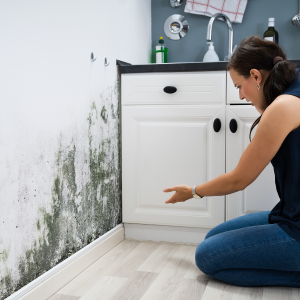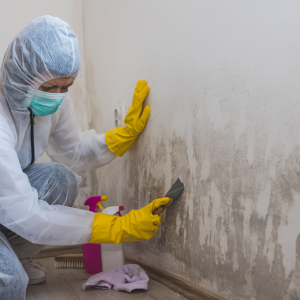
Cost Considerations for Mold Remediation
How Much Does Mold Remediation Typically Cost in California?
The cost of mold removal in California varies depending on several factors. Mold remediation costs often range between $1,500 and $6,000. Costs may be higher if the mold spreads widely or in difficult-to-reach areas. Hiring mold remediation specialists in California will ensure the task is done correctly, adding value to your house and preventing future mold problems.
Are There Financial Assistance Programs for Mold Removal?

In California, there are financial help programs for mold removal. Insurance claims for mold damage might assist in offsetting expenses. Understanding the insurance process can be difficult, so speaking with specialists is best. Some state or federal programs may assist qualifying homeowners suffering from significant mold repair costs.
What Factors Affect the Cost of Mold Remediation?
Several things can affect the cost of mold remediation:
- Growth Extent: More mold means more time and resources needed.
- Professional Mold Inspection: Inspections help find the problem’s severity and location, impacting costs.
- Remediation Process: The methods used for removal.
- Location: Where you live and how easy it is to reach the mold affects prices.
- Severity: The amount of mold impacts both treatment and cost.
Understanding California’s Mold Disclosure Laws
What Must Sellers Disclose About Mold?
In California, sellers must fill out documents regarding any mold in a home. These disclosure forms keep potential purchasers informed. These legal standards protect buyer interests and maintain fair market practices when selling a mold-infested home.
How Do Mold Disclosure Laws Affect the Selling Process?
In California, sellers must disclose any known presence of termites or mold in real estate transactions. These disclosures protect buyers, affect pricing, and help avoid legal issues, ensuring smoother and compliant sales.
Preparing Your Home for Sale After Mold Remediation
How Can You Enhance Your Home’s Appeal Post-Remediation?

Making your home attractive after mold remediation is key to attracting buyers and keeping its value high. Here are some steps to address mold issues and boost appeal:
- Get a Mold Clearance Certificate: This shows the property is mold-free, giving buyers confidence in their purchase.
- Improve the Home: Consider painting, updating fixtures, or bettering the yard. These changes can distract from past mold issues and enhance your home’s features.
- Show Off Mold-Free Advantages: Highlight benefits like better air quality and a healthier space in your listing.
Are There Home Staging Tips for Houses Previously Remediated for Mold?
Staging a home with a history of mold needs careful planning to increase appeal and ease buyer worries:
- Choose Neutral Colors: Use neutral paint to refresh rooms and create a welcoming feel.
- Boost Lighting: Good lighting can show off clean, open spaces and ease concerns about mold.
- Keep It Clean: Make sure every part of the house, especially mold-affected areas, is spotless. A clean home suggests proper maintenance.
- Share Documentation: Have the mold clearance certificate visible during open houses to reduce lingering fears.
Addressing Buyer Concerns about Mold History
How to Effectively Communicate Mold History to Potential Buyers?
Being open about the mold history of your home builds trust with potential buyers:
- Be Honest: Clearly discuss past mold problems and how they were fixed. Openness is vital when selling a home with mold.
- Know the Laws: Understand local rules, such as California’s mold disclosure laws, to stay compliant and avoid trouble.
- Provide Proof: Show buyers the remediation documents and reports from professionals who worked on fixing the mold issue.
What Are Common Buyer Concerns Regarding Mold, and How Can They Be Addressed?
Buyers may worry about health risks and long-term effects of mold. Address these concerns by:
- Give Reassurance: Mention any warranties or professional guarantees related to the remediation to calm potential buyers.
- Show Transparency: Open communication and offer full details about how the mold was handled and resolved.
- Inform Buyers: Explain the health risks of untreated mold and how remediation has reduced these risks effectively.
Impact of Mold on Property Valuation
Does a History of Mold Affect Home Appraisal Values?

Mold poses questions for appraisers, which can reduce a house’s value. Mold problems suggest structural or moisture difficulties, which would turn off purchasers and lower assessment value. Selling a house with a mold history is difficult in California, where the climate makes mold rather prevalent. This is especially true in places with rigorous mold disclosure policies, which can even lower the selling price.
How Can Mold Influence Market Perception of a Property?
Depending on the mold, a property may lose appeal to purchasers. Many believe houses with mold are dangerous investments requiring more money for repairs and cleanup. In California’s hot real estate market, a mold history can push buyers away despite laws that require sellers to disclose mold. Ignoring mold concerns can also cause legal trouble, lessening the home’s appeal and increasing its selling difficulty.
Engaging with Mold Inspection Experts
What Role Do Mold Inspectors Play in the Selling Process?
Selling a house depends heavily on mold inspectors. They discover mold problems ahead of a sale. Like pre-sale mold inspections in California, a professional inspection guides sellers toward areas needing repairs. California-certified mold inspectors produce comprehensive reports that support negotiations. Their expertise ensures everyone is aware of mold problems, facilitates a flawless sale, and maintains the house’s value.
How to Choose a Qualified Mold Inspector in California?
Choosing a reputable mold inspector in California requires looking at their qualifications and background. Search for licensed mold inspectors conversant with state regulations. Renowned California mold testing firms can help you. They should be familiar with California’s mold rules so that house sellers may provide correct guidance. Along with helping to cure mold issues, a qualified inspector guarantees legal compliance.
Strategies for Selling “As-Is” with Mold History
What Are The Benefits And Risks Of Selling A House As An “as-is”?

Selling a house “as-is,” particularly in cases of a mold history, offers advantages and hazards. One advantage is your quick selling power. Those searching for “as-is” homes might not be bothered by little problems or fixes, which would speed transactions. Investors looking to rent houses or flip them will find this enticing. On the downside, the cost of mold correction usually results in decreased sales value for these features.
Selling a house with mold comes under particular legal rules in California. You should let possible buyers know about any mold issues you encounter. Ignoring this can cause legal problems down the road. Knowing your disclosure responsibilities under California law helps shield you from claims or litigation down the road.
How Do Cash Offers Work for Homes with Mold Issues?
Thinking about cash offers could be wise if mold exists in your house. Since cash offers typically close faster than conventional sales, they are a speedy selling choice for moldy homes. Cash offers save you from protracted bank talks.
Cash offers from buyers sometimes represent real estate investments. They see possible returns if the mold is corrected and are adept at negotiating for moldy homes. Understanding the California property market can help you to handle these offers. Dealing with seasoned real estate brokers will assist you in acquiring the best bargain.
Legal Implications of Non-disclosure
What Are the Consequences of Failing to Disclose Mold?
Failure to disclose mold when selling a California house can have serious implications. In California, sellers are required to fill out mold disclosure paperwork. If you omit this stage, you risk legal liability and being sued by customers for lying. California mold rules for house sellers promote transparency and safeguard purchasers.
Non-disclosure of mold might result in legal measures such as paying for damages or terminating the sale. Knowing about these dangers can help you prevent costly lawsuits and reputational damage.
How Can Sellers Protect Themselves from Legal Liability?
A house in bad condition requires careful attention to legal and disclosure obligations. Sellers should follow a few precautions to avoid legal issues. First, be open by contacting expert mold inspectors in California to inspect the home. This can help you complete disclosure documents appropriately and meet all California disclosure requirements.
Adding a mold-related repair addendum to the sales contract might clarify who is liable for repairing mold. Speaking with a legal expert regarding mold damage insurance claims can help to improve your case. By taking these steps, you can reduce liability in mold sales, increase buyer trust, and help the transaction go more smoothly.
Navigating Insurance and Warranty Coverage
How Can Homeowners Insurance Help with Mold Issues?

Homeowners insurance can help when you face mold problems, but coverage often depends on how the mold occurred. Usually, insurance covers mold if it results from something like water damage from a burst pipe. Be aware of these points:
- Insurance Claims for Mold Damage: To make a successful insurance claim, you must show that an incident covered by your policy caused the mold. Gather all necessary documents and evidence.
- Insurance Coverage: Check your policy to understand what is covered and any limits regarding mold.
- Policy Limits: Many policies limit how much they will pay for mold removal, so know these limits.
- Claim Process: Report mold issues to your insurer quickly and follow their steps to resolve the claim faster.
- Exclusions: Some things, like mold from long-term leaks or poor maintenance, might not be covered.
What Does a Home Warranty Cover Concerning Mold?
Home warranties usually don’t cover mold directly, but they can still be useful. They may cover repair costs that might prevent mold growth:
- Coverage Terms: Home warranties typically cover mechanical breakdowns that could lead to mold, not the mold itself.
- Warranty Limitations: Read the warranty carefully to know what it excludes.
- Service Contract: This document shows what repairs are included and their costs.
- Repair Costs: Understand what your plan covers to avoid surprise expenses.
- Exclusions: Common exclusions include damage from negligence or pre-existing conditions.
Leveraging Real Estate Professionals for Guidance
Why Should You Consult a Realtor Familiar with Mold Issues?

Talking to a Realtor who knows about mold issues can be helpful when selling a home:
- Expertise and Guidance: Realtors with experience can advise on handling mold-related problems.
- Selling Strategies: They can suggest ways to keep property value high despite mold issues.
- Property Value: Knowing how mold affects your home’s value helps set a fair price.
- Disclosure Requirements: Realtors ensure you disclose mold issues properly to avoid legal trouble later.
- Market Trends: Being aware of market trends helps decide when to sell.
How Can Real Estate Professionals Facilitate the Selling Process for Mold-Affected Homes?
Real estate professionals can make selling homes with mold easier by addressing buyer concerns and streamlining the process:
- Negotiation: Good experts will negotiate terms that cover mold removal costs fairly.
- Buyer Concerns: Experts can calm buyers’ worries by being open about the mold and what’s being done about it.
- Marketing: Highlighting mold remediation efforts can make the property more appealing to potential buyers.
- Property Listing: Properly listing the home with full disclosures keeps everything transparent and legal.
- Transaction Management: Handling paperwork and communications efficiently ensures a smooth sale.
Joe Homebuyer SoCal Metro provides strategic solutions that are suited to your specific demands.
FAQs:
What Are The Legal Requirements For Selling A House With Mold In California?
In California, sellers must tell buyers about mold problems they know about. This is important to keep things honest in the sale. If sellers don’t share this information, they might face legal trouble or even buyer lawsuits.
How Does Mold Affect The Value Of A Property?
Mold can lower a property’s value because it scares away many buyers due to health concerns and repair costs. Fixing mold problems before selling can help keep the home’s value and make it more appealing.
Are There Specific Mold Inspection Rights For Buyers In California?
Yes, buyers in California can hire someone to do a mold inspection. This is usually part of the home inspection process and helps buyers deal with concerns or ask for repairs before they agree to buy the home.
What Should Sellers Do To Address Mold Issues Before Listing Their Homes?
Sellers should hire professionals to remove mold before putting their homes on the market. This includes inspections, fixing the mold, and getting a certificate that shows the home is safe from mold, which can reassure buyers.
Can I Sell My House “as-is” If It Has Mold Issues?
Yes, you can sell your house as-is, but you must tell buyers about the mold. This might reduce the number of interested buyers, but some investors buy homes with problems like this and offer quick sales.
What Are The Common Strategies For Mitigating Mold Growth In Homes?
To prevent mold, fix water leaks quickly, ensure proper ventilation in places like attics and bathrooms, and use materials that resist mold. Regular checks and maintenance can also prevent bigger problems.
How Does Mold Impact The Closing Process Of A Property Sale?
Mold can slow down the sale process if it’s found late. Buyers might want it fixed before continuing, or they may offer less money to cover future costs. It’s best to disclose and fix mold early to avoid these troubles.
What Costs Are Involved In Mold Removal In California?
The cost to remove mold varies, depending on how bad and where the mold is. In California, professional mold removal can cost from a few hundred to several thousand dollars. Spending money on proper removal can protect the home from more damage and help it meet selling rules.
Key Insights
- Selling a house with mold in California requires knowing the mold disclosure laws and legal rules to keep things honest during the sale.
- Sellers should get a professional mold inspection before listing. Fixing any mold issues can help maintain or even boost a home’s value and appeal.
- Clean up the mold before you sell to make your home more attractive to buyers. This can draw in many buyers and possibly result in higher offers.
- In California real estate, you must fully disclose environmental hazards, like mold, to avoid legal trouble and meet seller responsibilities.
- When setting your asking price, consider mold removal costs and any water damage, as they impact the sale process.
- Hire mold remediation specialists to get a mold clearance certificate. This can give buyers confidence and make the sale smoother.
- Mold can lower a home’s appraisal if not handled and disclosed properly, so it’s important to understand its impact.
- Buyers have the right to do mold inspections. Address these concerns early with negotiation strategies or repair addendums for easier sales.
- Sellers should be mindful of potential mold liability. Consulting experts on mitigation strategies can help avoid lawsuits after the sale.
- Depending on market conditions and buyer interest, offering contingent deals, quick sale options, or selling as-is while disclosing mold problems can be effective strategies.
Read on to discover everything you need to know about selling a house in California. Whether you’re in Riverside, San Diego, Bakersfield, San Bernardino, Fontana, or any surrounding area, these insights apply to homeowners across the state. If you’re looking for a fast and hassle-free way to sell, we also buy houses in any condition, providing a simple solution for homeowners who need to sell quickly. For more information or personalized assistance, feel free to Contact Us at (562) 620-4062.


